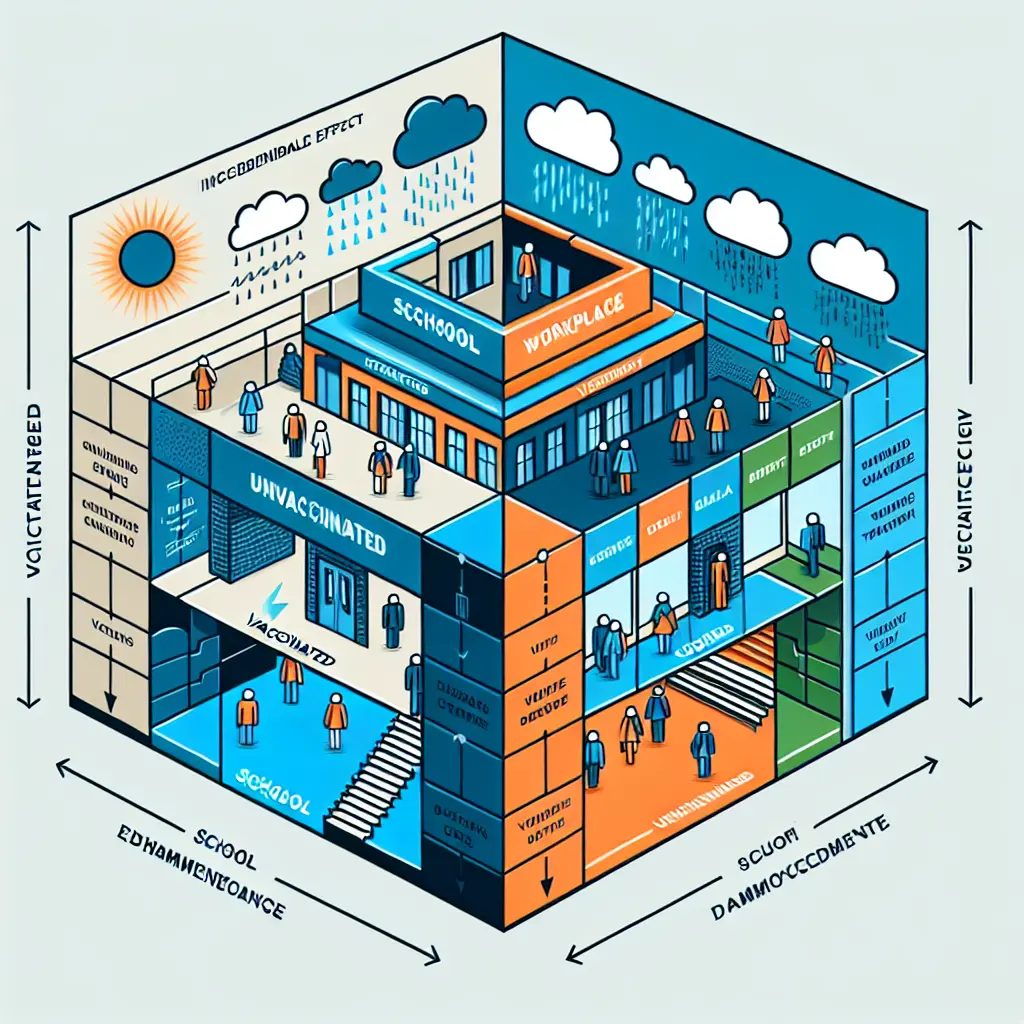
Vaccine mandates have become a focal point in discussions about public health policy, particularly in the context of the COVID-19 pandemic. These mandates have had significant impacts on both school and workplace attendance, stirring a mix of support and controversy across various sectors. This blog post explores how these mandates affect school and workplace environments, integrating recent news and updates to provide a comprehensive view of the landscape.
The Impact of Vaccine Mandates on School Attendance
Vaccine mandates in educational settings, termed as 'vaccination rules schools,' aim to safeguard students and staff by reducing the spread of COVID-19. These mandates require students, faculty, and staff to be vaccinated unless exempt for medical or religious reasons. The policy's impact on school attendance has been notable. Schools that have implemented strict vaccine mandates generally see higher rates of in-person attendance and fewer disruptions due to outbreaks. This supports the educational sector's broader goal of maintaining consistent, safe learning environments.
However, these mandates are not without controversy. Some argue that mandatory vaccination effects may include a sense of coercion and infringe on personal freedoms. For instance, J.D. Vance, a political figure, once suggested that nurses should be fired if they refused the COVID-19 vaccine, highlighting the tension between public health policy and individual choice (source needed).
Vaccine Compliance in the Business Sector
In the workplace, 'vaccination rules workplaces' play a crucial role in determining how businesses operate during and after the pandemic. Many companies have implemented vaccine mandates to ensure a safe working environment, which has significantly influenced workplace attendance. Companies with strict compliance to vaccine policies have been able to return to in-person work sooner and with less risk of COVID-related disruptions.
However, these mandates have led to legal and ethical challenges. A notable example involves a former Risk Management Director at Netflix who filed a lawsuit against the company, alleging sexual harassment and retaliation connected to disagreements over vaccine mandates (source needed). This case underscores the complex interplay between health policy and workplace dynamics.
Recent Perspectives and Studies on Vaccine Mandates
Recent events and studies provide a broader context for understanding the effects of vaccine mandates. For instance, former President Donald Trump, at a campaign rally with Vance, referred to his actions during his presidency as having taken 'a bullet for democracy,' indirectly touching on his administration’s pandemic responses (source needed). In contrast, Tim Robbins has criticized comparisons of pandemic measures to scenarios depicted in films like his 1992 movie ‘Bob Roberts,’ calling such comparisons "deranged" (source needed).
Moreover, studies continue to reveal the life-saving benefits of vaccine and mask mandates. Research indicates that these public health interventions have significantly reduced COVID-19 related deaths (source needed). Yet, there are contrasting views as well; a former CDC chief labeled vaccine mandates as one of the greatest policy missteps during the pandemic (source needed), and another study suggested that policies around COVID-19, including mandates, contributed to excess mortality in some contexts (source needed).
Public Opinion and Policy Directions
Public opinion on vaccine mandates varies widely. Some public figures like Perrottet have declared pandemic vaccine mandates as 'wrong,' advocating for personal freedom and choice in health matters (source needed). This sentiment is echoed in broader societal debates about the balance between public health security and individual rights.
Conversely, others argue that despite their imperfections, public health interventions including vaccine mandates are crucial for saving lives (source needed). This ongoing debate influences policy directions, with some regions reconsidering or rolling back mandate requirements in light of vaccination progress and public sentiment.
Conclusion
The implementation of vaccine mandates in schools and workplaces has profoundly impacted attendance patterns and operational dynamics in these settings. While they have undoubtedly helped in controlling the spread of COVID-19 and facilitated safer physical gathering environments, they also raise significant ethical and legal questions.
The conversation around vaccine mandates is far from over. It embodies the ongoing struggle to balance health security with personal freedoms — a central theme in pandemic management strategies worldwide. As we move forward, it will be essential for policymakers to consider both the scientific evidence supporting vaccine efficacy and the societal values that underscore personal choice.
Thank you for joining this exploration of a deeply relevant and evolving topic. As we navigate these challenging times, may we strive for solutions that honor both our collective well-being and individual liberties.
Gregory Stanton